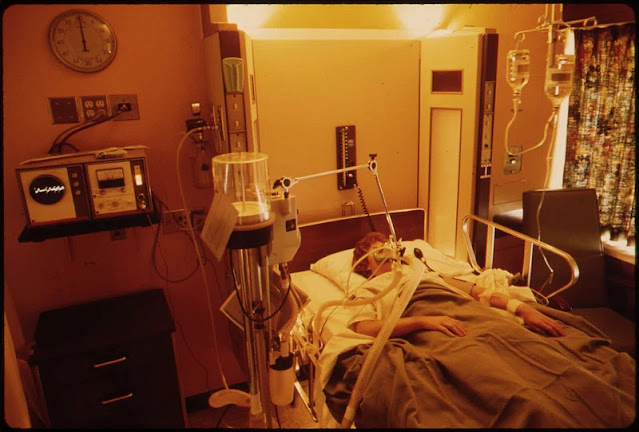Madonna breaks silence amid health scare,
Bacterial infections are a common and often treatable condition. However, in some cases, bacterial infections can become severe and even life-threatening. These infections can be caused by a wide range of bacteria, some of which are highly resistant to antibiotics. In this article, we will discuss the basics of bacterial infections, how they can become serious, and the case of Madonna's recent hospitalization due to a bacterial infection.
What's "Bacterial Infection"?
Bacterial infections are caused by bacteria that enter the body and multiply, causing symptoms such as fever, inflammation, and swelling. These infections can occur in any part of the body, including the skin, lungs, urinary tract, and bloodstream.
Bacterial infections are typically treated with antibiotics, which work by killing or inhibiting the growth of bacteria. However, not all bacterial infections respond to antibiotics, and in some cases, the bacteria may become resistant to antibiotics.
How can Bacterial Infection Become so serious?
Bacterial infections can become serious when the bacteria enter the bloodstream and spread throughout the body. When this happens, the infection can cause a condition called sepsis, which is a life-threatening medical emergency. Sepsis can lead to organ failure, septic shock, and even death.
Sepsis and Bacteremia
Sepsis is a medical emergency that occurs when the body's immune system overreacts to an infection. This can cause inflammation throughout the body, leading to organ failure and other serious complications.
Bacteremia is a condition where bacteria are present in the bloodstream. Bacteremia can occur as a result of a bacterial infection or from invasive medical procedures, such as surgery or catheterization. Bacteremia can lead to sepsis if the bacteria multiply and spread throughout the body.
Antibiotic Resistance
Antibiotic resistance occurs when bacteria develop the ability to resist the effects of antibiotics. This can occur naturally over time, or it can be caused by overuse or misuse of antibiotics.
Antibiotic resistance is a growing problem worldwide, and it can make bacterial infections more difficult to treat. In some cases, antibiotic-resistant infections can be life-threatening, as there may be no effective treatment available.
Resistant Bacterial Strains
Some bacterial strains are naturally resistant to certain antibiotics. For example, Methicillin-resistant Staphylococcus aureus (MRSA) is a type of bacteria that is resistant to many common antibiotics. Other bacteria can become resistant through genetic mutations or through the transfer of resistance genes from other bacteria.
Bacterial Infections that Need ICU
Some bacterial infections are more serious than others and may require intensive care unit (ICU) treatment. These infections can include:
Pneumonia
Meningitis
Septicemia
Endocarditis
Necrotizing fasciitis
Immune System and Cytokine Storm
The immune system plays a critical role in fighting off bacterial infections. However, in some cases, the immune system can overreact to the infection, causing a condition called cytokine storm.
Cytokine storm occurs when the immune system releases a large amount of cytokines, which are proteins that help regulate the immune response. Too many cytokines can cause inflammation throughout the body, leading to organ damage and other serious complications.
What Happened with Madonna " Medical Report "?
It's not clear what initially caused Madonna's bacteria infection, but doctors say it became extremely serious and required treatment in intensive care.
Infections can develop into a life-threatening condition called sepsis or blood poisoning.
It is a medical emergency and happens when the body develops an extreme reaction to the infection.
Without the right treatment it can lead to tissue damage, organ failure and even death.
Most often, the initial infection that triggers these events starts in the lungs, skin, urinary system or digestive tract.
Sepsis can happen to anyone with an infection, but it is more likely if someone is already run down, vulnerable or unwell.
Future Fight with Bacterial
The fight against bacterial infections is ongoing, and researchers are continually developing new treatments and strategies to combat antibiotic resistance. Some of the strategies being explored include:
Developing new antibiotics
Using combinations of antibiotics to treat infections
Developing vaccines to prevent bacterial infections
Improving infection control measures in healthcare settings
New Antibiotics for Human Safety
The development of new antibiotics is critical for treating bacterial infections and combating antibiotic resistance. However, the development of new antibiotics is a complex and time-consuming process.
Several new antibiotics have been approved in recent years, including:
Ceftazidime/avibactam (Avycaz)
Meropenem/vaborbactam (Vabomere)
Delafloxacin (Baxdela)
Omadacycline (Nuzyra)
Conclusion
Bacterial infections can be a serious and life-threatening condition, especially when they lead to sepsis. Antibiotic resistance is a growing problem that can make bacterial infections more difficult to treat. Madonna's recent hospitalization due to a bacterial infection highlights the importance of infection control measures and the ongoing fight against antibioticresistance.
It is important for individuals to take steps to protect themselves from bacterial infections, such as practicing good hygiene and getting vaccinated when possible. Healthcare providers also play a critical role in preventing the spread of bacterial infections and in treating patients who develop these infections.
The development of new antibiotics and other treatments for bacterial infections is an ongoing process, and researchers are continually working to find new ways to combat antibiotic resistance and to improve patient outcomes. By working together, we can continue to make progress in the fight against bacterial infections and improve the health and well-being of individuals around the world.




.jpg)



0 Comments